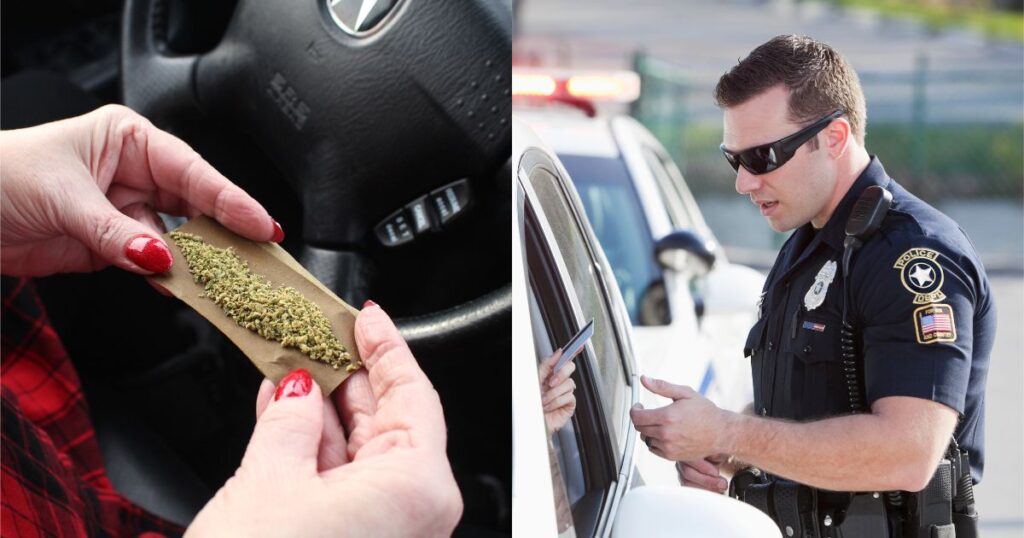The Chicago Police Department (CPD) recently introduced significant changes to its policy regarding searches based solely on the odor of marijuana. This revision stems from evolving legal interpretations and ongoing efforts by advocacy groups to address issues of fairness and civil liberties in law enforcement practices. Considering Illinois’ legalization of cannabis for personal use since 2020, this policy marks a necessary shift and focuses on aligning enforcement practices with the current legal and social norms.
The Odor of Marijuana and Vehicle Searches
Previously, CPD policies allowed officers to search vehicles based on the odor of marijuana, specifically raw cannabis. This approach hinged significantly on a key ruling in People v. Molina (2024), where the Illinois Supreme Court determined that the smell of raw cannabis alone could serve as probable cause for a warrantless vehicle search.
Conversely, the same court ruled in People v. Redmond (2024) that the smell of burnt cannabis, by itself, was insufficient for probable cause, acknowledging that many legal situations could lead to such a smell without meaning criminal activity.
The conflicting rulings created confusion for both law enforcement professionals and civilians regarding their rights and the limits of police authority during encounters. This confusion was further compounded by inconsistencies in how officers applied these legal precedents in the field.
To address these issues, CPD has revised its guidance, as pointed out in an article by Marijuana Moment.
Under the updated policy, searches based solely on the smell of raw cannabis are no longer standard procedure unless specific circumstances align with articulated facts of criminal activity. The policy also emphasizes that officers need additional training to distinguish between the smells of raw and burnt marijuana before searches based on odor are deemed permissible.
Background and Advocacy Efforts
Lawsuits and advocacy by groups like the American Civil Liberties Union (ACLU) of Illinois have pushed CPD to reconsider its stance on marijuana odor-focused searches.
They pointed out that allowing police to justify stops and searches based on vague claims of cannabis odor disproportionately impacted communities of color. They highlighted the potential for abuse and racial bias in applying such policies, often linking them to broader issues of over-policing in marginalized neighborhoods.
The updated policy is seen as the result of years of negotiation and community advocacy, as well as a response to the ongoing consent decree that governs CPD’s reform efforts. This decree, brought forward by federal courts to address systemic policing issues, aims to ensure accountability and respect for constitutional rights in law enforcement.
CPD Policy Updates on Marijuana Odor and Searches
The updated CPD policy on marijuana odor searches introduces several key changes and clarifications. First, officers are no longer allowed to conduct investigatory stops or vehicle searches based solely on the smell of cannabis. The policy now requires additional “specific and articulable facts” that suggest probable criminal activity before proceeding with such actions.
Second, the redefinition of exceptions has narrowed the circumstances under which cannabis odor can justify a search. Although the Supreme Court’s decision in Molina remains relevant, its application is now more restricted. Updated guidance urges limiting these exceptions and ensures officers receive training on the new standards.
Third, the policy seeks to address consent-based searches. Officers should avoid using the odor of marijuana as a reason to ask drivers for consent to conduct further searches. This change aims to reduce the disproportionately high number of consent-based searches conducted on Black and Latino drivers.
Additionally, the policy emphasizes clarity and transparency. Officers must now document detailed reasons for conducting a search, including specific facts beyond just the smell of cannabis. These records are critical for accountability and ensuring compliance with constitutional standards.
Lastly, the updated policy mandates enhanced officer training. Before doing searches based on odor distinctions, officers must undergo additional training to help them reliably differentiate between the smells of burnt and raw cannabis. This measure aims to reduce arbitrary or uninformed decisions during traffic stops.
Implications for Civil Liberties
At its core, the CPD policy change represents a meaningful step toward reducing unnecessary policing interactions and protecting individual rights. It acknowledges the societal shift following marijuana legalization, is going to come to the conclusion of smelling the odor of marijuana more often, and seeks to align law enforcement practices accordingly.
Critics of prior policies often pointed out that vague justifications like the “smell of cannabis” allowed room for profiling and inconsistent enforcement. With these revisions, civilians may feel more confident in asserting their rights during police encounters, particularly in communities that have historically faced disproportionate scrutiny.
However, further legislative changes may still be necessary to fully address challenges posed by conflicting legal rulings. Advocacy groups are urging lawmakers to remove the requirement for cannabis to be transported in odor-proof containers.
Such a change could override rulings like Molina and further restrict searches solely based on odor.
Looking Ahead
Despite these positive changes, ensuring effective implementation remains a challenge. The document outlining the changes highlights the importance of officer training and public awareness.
Additionally, this policy change serves as a reminder of debates surrounding marijuana reform in the U.S. As states continue to legalize cannabis, law enforcement agencies face pressure to reevaluate outdated practices.
The ongoing discussions around legal marijuana enforcement highlight the balancing act between public safety and civil liberties. Chicago’s updated policy pushes the needle forward, signaling a shift toward fairness in policing and justice surrounding legal cannabis.
















